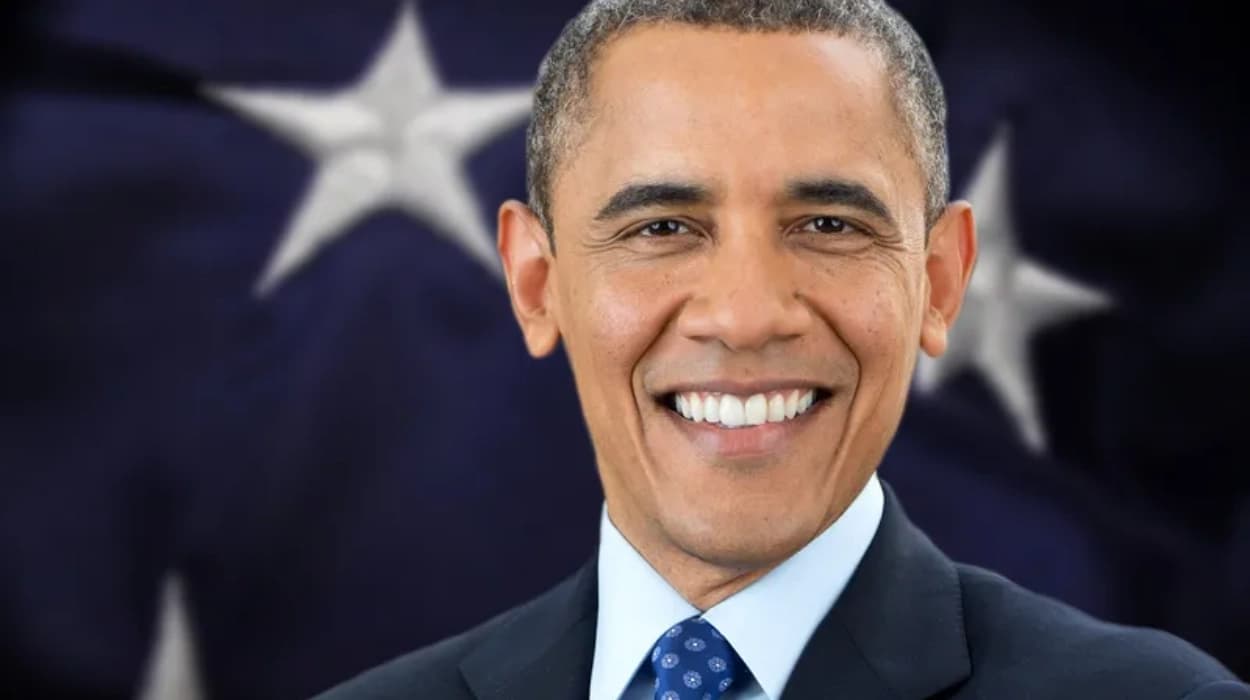Barack Hussein Obama II served as the 44th President of the United States from 2009 to 2017, making history as the first African American to hold the nation's highest office.
Early Life and Political Ascent
Born on August 4, 1961, in Honolulu, Hawaii, Barack Obama’s multicultural upbringing shaped his worldview. His father, Barack Obama Sr., was a Kenyan economist, and his mother, S. Ann Dunham, hailed from the United States. After spending part of his childhood in Jakarta, Indonesia, Obama returned to Hawaii, graduating from Punahou School before attending Occidental College and later Columbia University.
Following his graduation, he worked as a community organizer in Chicago's Far South Side and earned a magna cum laude degree from Harvard Law School, where he was the first African American to serve as president of the Harvard Law Review. Obama was elected to the Illinois State Senate in 1996, advocating for campaign finance reform, health care expansion, and criminal justice reforms. His national breakthrough came in 2004 delivering the keynote speech at the Democratic National Convention, launching his U.S. Senate career, and ultimately positioning him for the presidency.
Historic Presidential Campaign and Election
Obama’s 2008 presidential campaign resonated widely, empowering young voters and minorities with a message of hope and change. He defeated a crowded Democratic field and went on to face Republican Senator John McCain. Emphasizing healthcare reform, economic recovery from the financial crisis, and a fresh approach to international relations, Obama secured nearly 53 percent of the popular vote, winning decisive electoral votes.
His inauguration witnessed historic turnout and optimism, symbolizing a milestone in U.S. social progress and political evolution.
Domestic Policy and The Economic Recovery
The early years of Obama’s administration were dominated by addressing the 2008 financial crisis. The enactment of the American Recovery and Reinvestment Act injected substantial stimulus funds aiming to restore economic growth and stabilize markets.
Health care reform became a signature achievement with the passage of the Patient Protection and Affordable Care Act, expanding insurance coverage to millions and introducing regulations to prevent denial due to pre-existing conditions. The law's passage provoked intense national debate but fundamentally reshaped the U.S. healthcare landscape.
Obama’s administration also pursued educational improvements, environmental protection initiatives, and financial regulation reforms to prevent future economic collapses.
Foreign Policy and Global Diplomacy
Barack Obama’s presidency marked a shift toward multilateral diplomacy. Early actions included executive orders banning harsh interrogation techniques and efforts to close the controversial military detention center at Guantánamo Bay.
His landmark 2009 speech in Cairo sought to reset relations with the Muslim world, fostering dialogue and cooperation. The administration navigated complex conflicts in Iraq, Afghanistan, and targeted counterterrorism efforts against al-Qaeda and later ISIS.
Obama endorsed international agreements on climate change, including the Paris Agreement, reinforcing global commitments to reduce greenhouse gas emissions.
Social and Civil Rights Advances
The Obama era advanced social justice causes including support for LGBTQ rights, the Deferred Action for Childhood Arrivals (DACA) program aiding undocumented youths, and reforms addressing racial disparities in criminal justice.
His administration championed equal pay initiatives and made strides in promoting diversity across federal agencies.
Challenges, Partisanship, and Legacy
Despite achievements, Obama faced increasing political polarization. Opposition from Republicans intensified, especially around healthcare reform, economic policies, and federal spending. The rise of movements like the Tea Party reflected broader ideological divides.
Nonetheless, Obama’s presidency left a profound mark, inspiring movements for change and shaping subsequent policy debates. His Nobel Peace Prize in 2009 recognized his efforts to enhance diplomacy and cooperation despite ongoing conflicts.
Barack Obama’s presidency from 2009 to 2017 was an era of historic breakthroughs and complex challenges. His leadership transformed American politics, healthcare, and foreign relations, earning him both acclaim and criticism. Understanding his tenure provides valuable insights into the evolving landscape of US governance and global influence in the 21st century.

